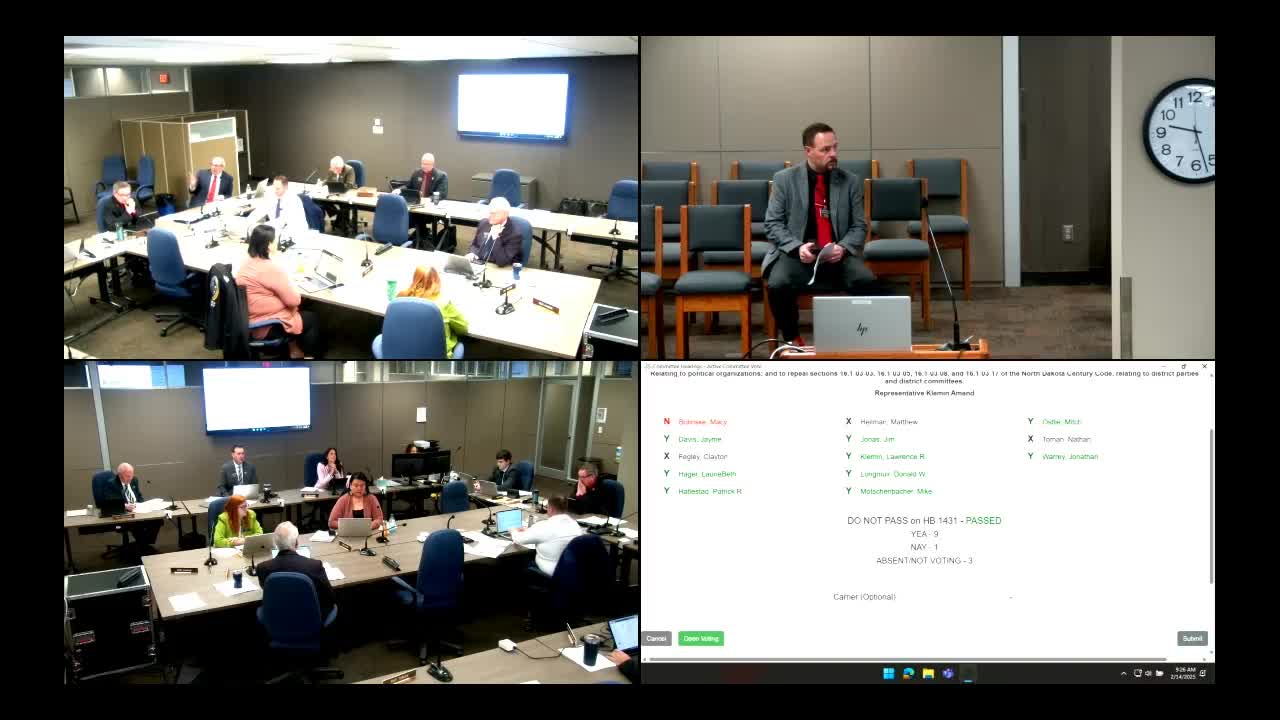Committee narrows liquor‑control enforcement rules, advances bill after amendments
Get AI-powered insights, summaries, and transcripts
Subscribe
Summary
Lawmakers amended and advanced House Bill 1375 to limit the scope of local liquor-control ‘random inquiries,’ clarify compliance checks and preserve existing penalties; sponsors and law enforcement debated scope and timing for charges.
The Political Subdivisions Committee voted to advance House Bill 1375 as amended and further amended after lawmakers narrowed a provision that had drawn complaints from a downtown bar owner and clarified timelines for filing charges related to liquor-control enforcement.
Representative Ben Koppelman, sponsor of the amendment, told the committee the changes respond to testimony from a bar owner who said local law enforcement’s tactics during compliance checks were overly aggressive. The amended language makes clear that local governing bodies may conduct liquor-control compliance checks but generally prohibits random inquiries or investigations to detect unrelated illegal activity without an identified source and reasonable, articulable suspicion. The committee also restored the bill’s original penalty classification for underage patrons as an infraction rather than upgrading it to a Class B misdemeanor.
Koppelman described the measure as attempting balance: “If it is liquor compliance, go to your job,” he told the committee, explaining he had narrowed subsection 2 to address activities beyond core liquor-license compliance. Representative Heilman noted the sponsor had originally sought to mirror an existing Century Code provision that treats falsified operator’s licenses as a Class B misdemeanor, but he supported keeping the penalty an infraction in the amended bill.
The bill also shortens the timeframe for filing an affidavit explaining an alleged violation so licensees and law enforcement have clearer, earlier notice; sponsors said the intent is to ensure footage and records are available when a hearing occurs. Committee members debated whether a 14-day filing window would be practical for large cities, how “compliance checks” are defined across jurisdictions, and whether the changes would hinder officers from acting when they witness criminal activity.
After several floor-style amendments—one to keep the penalty as an infraction and another to strike section 1 in part—the committee approved the sponsor’s amended language and then passed the bill as amended and further amended. Representative Heilman was named carrier for the bill.
The committee vote on the final amended bill passed 7–4 with 2 members absent, according to the clerk’s roll.
